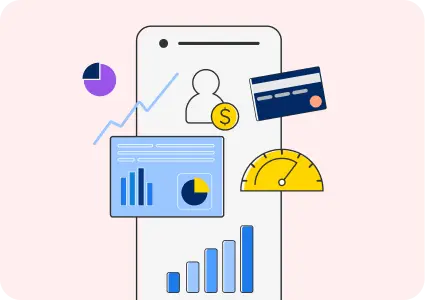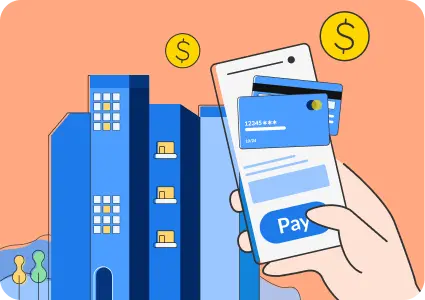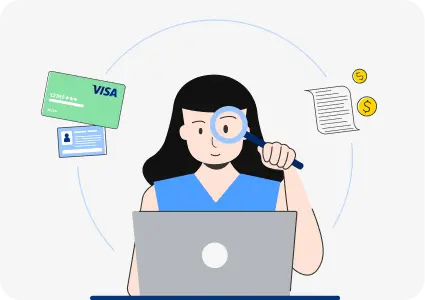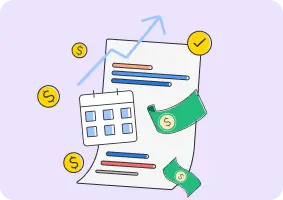For decades, before alternative credit scoring was popularized, the credit score dictated the financial opportunities both borrowers and lenders could utilize. Traditional credit scoring systems heavily relying on credit reports have helped lenders assess financial risks when granting loan products.
However, these systems have limitations. Individuals with limited credit history, those who rely on alternative financial services, or even responsible borrowers with short credit stints abroad can find themselves locked out of loans or facing unfavorable terms—all due to a lack of data about their financial standing.
To address this issue, the finance industry has introduced alternative data for credit scoring to add more criteria in assessing borrowers. By looking beyond traditional credit reports, lenders such as your company can better understand a borrower's financial health—leading to fairer credit decisions and increased financial inclusion.
Alternative data holds the potential to create a more equitable and accessible financial system for all, creating opportunities to integrate seamless financing systems from open finance technology providers.
What is alternative credit scoring?
Using alternative data for credit scoring is a method that assesses your potential borrower’s creditworthiness by looking beyond traditional credit reports. It considers a wider range of data points to create a more complete picture of a person’s financial health.
Before we go into what the alternative credit scoring data are, let us first understand traditional credit scoring.
When applying for loan products, the process typically begins with credit bureaus collecting information on an applicant’s borrowing behavior, including credit card debt, loan history, and payment patterns. This data is used to generate a credit report, which is a numerical representation of a person's creditworthiness. The report summarizes factors like payment history, credit utilization (amount of credit used compared to available credit), credit card history, length of credit history, and new credit inquiries.
However, traditional credit scoring doesn't fully show you how a borrower spends their money and the accurate representation of how much cash they receive.



So, to address what’s lacking in credit reports, financial institutions looked to non-traditional data sources to more accurately assess an individual’s credit and remove socioeconomic bias.
Features of alternative credit scoring
The features of alternative credit scoring revolve around the data sources excluded from traditional credit reports. This data can come from a variety of sources, including:



By incorporating these alternative data, your company as a lender can gain a more complete picture of a borrower's financial health and creditworthiness. In certain situations, someone with a limited credit history but a track record of on-time utility payments and responsible management of a BNPL account can be deemed a creditworthy borrower using these alternative data models.
Alternative credit scoring models
Some of the scoring models and analyses used to go through alternative credit scoring data are:



It's important to remember that alternative credit scoring is not a replacement for traditional credit reports, but rather a complementary tool. As a lender, your company can use a combination of both methods to assess creditworthiness
Benefits of alternative data for credit scoring
The adoption of alternative data for credit scoring offers several advantages for both lenders and borrowers:


Financial Inclusion
For the millions of unbanked and underbanked individuals who lack traditional credit history, alternative data can unlock access to credit and financial products. This promotes financial inclusion and empowers individuals to build a credit history and participate in the formal economy.
Accurate Credit Decisions
By considering a broader range of data points, alternative scoring models can provide you with a more precise assessment of a borrower's financial health. This can reduce the risk of bias based solely on traditional credit history.
Faster Loan Decisions
The same idea goes for loan approvals. Your access to alternative data can lead to more efficient loan application processing and faster approvals. This can be particularly beneficial for people who need access to credit quickly, such as for emergency expenses.
Improved Risk Management
Your company gains a more comprehensive understanding of borrower risk by using alternative data. This allows you to make more informed lending decisions and potentially offer more competitive loan terms to responsible borrowers with limited credit history.
Reduced Reliance on Traditional Credit Reports
Diversifying credit assessment with alternative data helps move away from a system overly reliant on traditional credit reports, creating a more inclusive and dynamic credit scoring landscape.
It's worth noting that while alternative data offers significant benefits, responsible implementation and collaboration between lenders, regulators, and FinTech companies is crucial. Doing so lets your company harness the full potential of alternative data for a more inclusive and fair credit scoring system.
The Future of Alternative Data in Credit Scoring
The future of credit scoring is likely to see an even wider range of alternative data sources integrated into the process. Subscription services, loyalty program data, and even data on how people manage their finances within budgeting apps can potentially be considered.
In fact, tools like Brankas' API for Lenders are already operational, using open finance systems to showcase a more secure, easier, and quicker data sharing FinTech. And with advancements in data analytics and artificial intelligence, there’s an opportunity to develop more sophisticated credit scoring models that can analyze complex data sets and make even more accurate creditworthiness assessments.
Collaboration between lenders, FinTech companies, and regulators is key to creating a robust and inclusive system for alternative data in credit scoring. Conversely, consumers must also be empowered with greater awareness and control over their alternative data footprint. This can involve providing clear and accessible information about how their data is used in credit scoring and offering options for them to manage their alternative data profiles.
Utilizing Modern Financial Practices and Partnering with Brankas' Services
Alternative data for credit scoring has the potential to revolutionize the lending landscape by creating a more inclusive and fair financial system. By providing a more holistic view of a borrower's financial health, alternative data can unlock access to credit for millions who are currently excluded. As this technology continues to evolve, collaboration and a commitment to responsible innovation are essential to building a more equitable and accessible financial future for all.
With that said, invest in Brankas’ financial services to upgrade your company’s financial infrastructure. By using our products and services, your business can create a seamless financial management system that’s beneficial to both you and your consumers. Partnering with us can provide your clients with a more user-friendly experience in handling their financial transactions, while you reap the benefits of having more information on their financial behavior.





